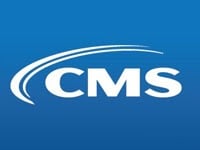The much-maligned formula by which the government determines what physicians will be paid for...
Government Issues FAQ Concerning DSM-5
 |
"The introductory material to the DSM-IV and DSM-5 code set indicates that the DSM-IV and DSM-5 are 'compatible' with the ICD-9-CM diagnosis codes. The updated DSM-5 codes are crosswalked to both ICD-9-CM and ICD-10-CM. As of October 1, 2014, the ICD-10-CM code set [will be] the HIPAA-adopted standard and required for reporting diagnosis for dates of service on and after October 1, 2014.
"Neither the DSM-IV nor DSM-5 is a HIPAA-adopted code set and may not be used in HIPAA standard transactions. It is expected that clinicians may continue to base their diagnostic decisions on the DSM-IV/DSM-5 criteria, and, if so, to crosswalk those decisions to the appropriate ICD-9-CM and, as of October 1, 2014, ICD-10 CM codes. In addition, it is still perfectly permissible for providers and others to use the DSM-IV and DSM-5 codes, descriptors, and diagnostic criteria for other purposes, including medical records, quality assessment, medical review, consultation, and patient communications."
APA has yet to determine the dates at which time it will recommend that government agencies and private insurers officially transition from using DSM-IV diagnoses to those in the new DSM-5. The CMS FAQ ends by referring readers to APA's DSM-5 Web site http://www.dsm5.org for additional information.
Information about purchasing DSM-5 and its companion guides is posted at http://www.appi.org/Pages/DSM.aspx.





